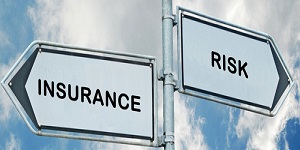While you are busy running and growing your small business, it is important you take some time to protect your small business from unforeseen events that may jeopardize its financial well-being. Buying insurance is the most efficient and effective way to do so. While the exact type(s) of insurance needed depends on the type of small business and the risks it faces, it is advisable for all small businesses to buy at least the following types of insurance at the minimum:
- General Liability Insurance: It provides both defense and damages if you, your employees, or your products or services cause, or are alleged to have caused, bodily injury or property damage to a third party.
- Property Insurance: It offers protection for damages to your business property structures (business premise – whether you own or lease) and contents (office furniture & equipment, computers, inventory, etc.) due to a fire, vandalism, theft, smoke damage, etc. It also covers certain exterior features such as signage, fencing, and landscaping against loss or damage due to covered risks.
- Business Auto Insurance: It offers the same types of coverage as offered by a personal auto insurance policy – liability, collision, comprehensive, personal injury protection, and uninsured/under-insured motorist. In most cases, you will not need this separate coverage if your car is used for both personal and business purposes. However, if the vehicle is exclusively for business use or it is titled to your business, you will need a separate policy.
- Workers’ Compensation: It pays for the medical expenses and a portion of lost wages of covered employees, for injuries and illnesses arising out of and in the course of employment. Workers’ Compensation is mandatory in most states.
- Business Owner’s Policy (BOP): This is the most common policy for small businesses. It bundles all required coverage a business owner would need (liability insurance, property insurance, business auto insurance, business interruption insurance, crime insurance, etc.) into a single policy, which typically costs less than the total cost of all of them individually. Based on your business’s specific needs, you can alter what is included in a BOP. A small business must meet certain criteria to be eligible for a BOP.
Whether or not you need other types of insurance in addition to the ones mentioned above depends on the type of small business you own, and the risks it faces. Some of the other types of insurance include Professional Liability Insurance (aka E&O Insurance), Product Liability Insurance, Employment Practices Liability Insurance, Directors’ and Officers’ Liability Insurance, Data Breach/Cyber Liability Insurance, Key Employee Insurance, Umbrella Policies, and Business Interruption Insurance.
Contact an insurance agent specialized in small business insurance, who can help you identify various risks your small business faces, and recommend insurance types and specific coverage you need, to protect your small business against those risks.

